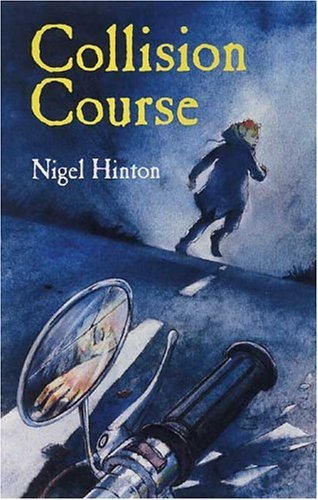A morality tale for pre-teens
16 April 2012
I was originally going to trash this book for being boring and pointless, but I as I think about it more, and also read some of the reviews of it, I guess I have come to a better understanding of the purpose behind this book. The story is about a young boy who steals a motor bike for a bit of a joyride, however he cannot actually ride the bike, loses control, and kills an old lady. Then, in a fit of panic, he runs off with the bike, effectively getting away with murder. Mind you, when I first read this book I was in year 9, which means that I was 14 years old, so it was a very long time ago. I guess in a way I am glad I did have a glance over some of the reviews of this book, because I probably should not simply write it off as being pointless.
We read this book in English and I am sort of wondering why it was a book for English Literature since it seems to deal a lot more with ethics than it does with literature. However, when we consider a lot of the books we will read in English Literature a lot of them will deal with conflict and conflict resolution as well as ethical dilemmas. That is the nature of literature and I guess this is what sets what one of my teachers called 'airport trash' apart from true literature. As I have said myself, a book is worth reading if it teaches you about yourself or the world around us, and this is something that this book certainly does, despite it being targeted at a young audience (there are a lot better books out there that deal with similar themes).
The idea behind this book is the concept of guilt, and I guess this is what sets the book apart from a lot of other books we encounter. A cardboard character, in a similar situation, is likely to ignore the fact that he killed somebody. The main character in this book is torn apart by it. Granted, nobody actually knows that he did the deed, but he does, and he struggles with his guilt over the fact that he did kill somebody. However the catch is that he not only committed manslaughter (depending on the jurisdiction that you are in – this is England – in some places killing somebody on the road, and then running off is actually a lesser charge. In South Australia the charges are Cause Death by Dangerous Driving, and Leaving the Scene of an Accident. Mind you both are serious charges, but they do not hold the same seriousness as does manslaughter). Oh, the difference between manslaughter and murder is that murder is intentional whereas manslaughter is not, however for a manslaughter charge to stick, one has to demonstrate what is called gross negligence. While there will be a court hearing if through your actions somebody dies, the court needs to be convinced that you were so negligent in your actions that you had no concern whatever over the effects of your actions on other people. Oh, and murder carries a mandatory gaol term whereas manslaughter does not.
I guess in a way I wish I listened to the theme in this book back then, rather than ignoring it and running off on my own little adventures. Okay, an adventure is not really an adventure unless there is danger, but that is beside the point. The school that I went to was a Christian School, and obviously they were attempting to teach us to recognise that there are consequences to our actions. Further, it is never the case that we can truly get away with murder. Okay, there are people out there who have no concern over their actions and can kill people without feeling guilt, however it is likely that these people have become so twisted and torn inside that they are merely shadows of humanity.
While I have not returned to the play Herakles yet (and will be doing so shortly) I will use this as an example to continue my exposition. While people may be monstrous in war, that does not mean that they can easily return to civilian life and live the life of a civilian. What Herakles demonstrates is that when one has been torn and corrupted by war it is difficult to truly settle back down into a life of peace. While it may seem good in one case to be desensitised to murder, it has its drawbacks, and some very serious drawbacks at that. Once a murderer, always a murder, unless there is some intervening event that will purify your heart and turn you away from your wicked past and create in you a new and moral person. How we come to that I will not outline here: I have done so elsewhere.

